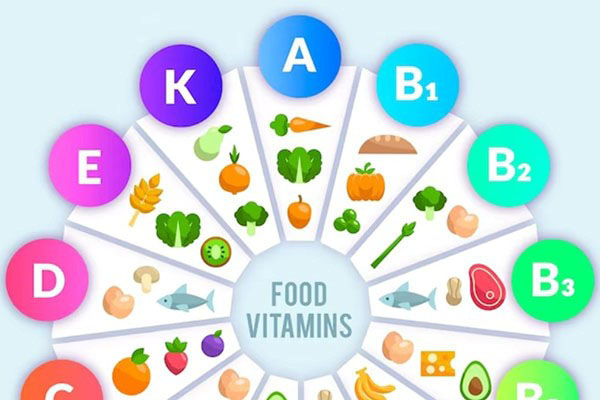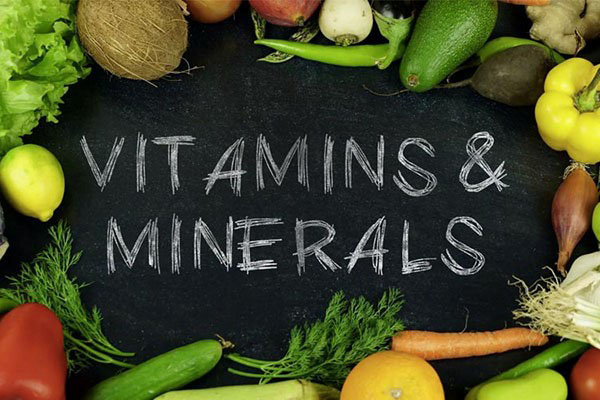During our teenage years, many of us longed to be a little taller. We’d gaze enviously at our taller friends, wondering if there was some secret they knew about vitamins or minerals that could give us a boost. While genetics play a major role in determining height, the question remains – can specific nutrients actually help us eke out a few extra inches?
In this article, we’ll dive into the scientific evidence surrounding vitamins, minerals, and their potential impact on height growth. We’ll examine nutrients like vitamin D, vitamin C, calcium, and zinc to see if they truly hold the key to adding a couple of inches to our stature. Get ready to uncover the truth behind this intriguing topic and whether your dreams of being taller could become a reality through proper nutrition.
What vitamins and minerals are essential for your body?
Vitamin A
Vitamin A is essential for cell development, immunity, and eyesight, and can be found in food, like carrots, sweet potatoes, spinach, and dairy products.
Vitamin B complex
B vitamins, including B1 (thiamine), B2 (riboflavin), B3 (niacin), B6 (pyridoxine), B12 (cobalamin), and folic acid, are involved in energy production, nerve function, red blood cell production, and metabolism. You can find these essential B vitamins in a variety of foods, such as whole grains, legumes, nuts, seeds, meat, fish, and leafy greens.
Vitamin C
You can find vitamin C in various sources, including citrus fruits, strawberries, bell peppers, broccoli, and tomatoes. These nutrient-rich foods can help support a healthy immune system and promote the production of collagen, which is essential for maintaining healthy skin, bones, and connective tissues.
Vitamin D
Our bodies naturally produce vitamin D when exposed to sunlight, but it can also be obtained from egg yolks, fatty fish, like salmon and mackerel, and fortified dairy products.

Vitamin E
Vitamin E, an antioxidant that helps protect cells from damage, can be found in nuts, seeds, vegetable oils, and leafy greens. Its presence in these foods contributes to overall cell health and protection against oxidative stress.
Vitamin K
Vitamin K is another vital nutrient that plays a role in blood clotting and bone health. Leafy greens, such as kale and spinach, along with broccoli and vegetable oils, are excellent sources of vitamin K.
Calcium
Fortified plant-based milk alternatives and calcium-set tofu are also excellent sources of this essential mineral. Ensuring an adequate intake of calcium is important for promoting strong bones and overall skeletal health.
Iron
Iron is crucial for oxygen transport in the blood and energy production. It plays a critical role in supporting healthy red blood cell formation. Sources rich in iron include red meat, poultry, fish, beans, lentils, spinach, and fortified cereals.
Zinc
Zinc can be obtained from various sources, such as meat, shellfish, legumes, nuts, and seeds. Adding these foods to your diet can make sure an adequate intake of zinc to support these important functions in the body.
Magnesium
Magnesium can be found in a variety of foods, such as nuts, seeds, whole grains, legumes, and leafy greens. Including these items in your diet can ensure you are getting enough magnesium to improve general health and encourage healthy growth.
How much of each vitamin and mineral do I need daily?
The recommended daily intake of vitamins and minerals can vary depending on many factors, such as age, sex, life stage, overall health, and specific needs.
Vitamin A
- Men: 900 micrograms (mcg) of retinol activity equivalents (RAE)
- Women: 700 mcg RAE
B Vitamins (Recommended Daily Allowance)
- Thiamine (B1): 1.2 milligrams (mg) for men and 1.1 mg for women
- Riboflavin (B2): 1.3 mg for men and 1.1 mg for women
- Niacin (B3): 16 mg for men and 14 mg for women
- Pyridoxine (B6): 1.3-1.7 mg for adults
- Cobalamin (B12): 2.4 mcg for adults
- Folic Acid: 400 mcg for adults
Vitamin C
- Men: 90 mg
- Women: 75 mg
Vitamin D
- Infants (0-12 months): 400-1,000 international units (IU)
- Children (1-18 years): 600-1,000 IU
- Adults (19-70 years): 600-800 IU
- Adults (over 70 years): 800-1,000 IU
Calcium
- Adults (19-50 years): 1,000 mg
- Women (51-70 years): 1,200 mg
- Men (51-70 years): 1,000 mg
Iron
- Men (19 years and older): 8 mg
- Women (19-50 years): 18 mg
- Women (51 years and older): 8 mg
Zinc
- Men: 11 mg
- Women: 8 mg
Magnesium
- Men (19-30 years): 400 mg
- Women (19-30 years): 310 mg
- Men (31 years and older): 420 mg
- Women (31 years and older): 320 mg
Do certain vitamins and minerals make you taller?
The simple answer is no, but proper nutrition does play an important role in helping you reach your full height potential.
While genetics are the primary factor determining how tall someone will grow, getting the right vitamins and minerals during childhood and adolescence is crucial for overall growth and development, including skeletal growth.
A balanced diet rich in protein, vitamin D, calcium, and other essential nutrients supports strong, healthy bones. This allows kids and teens to grow at the expected rate, maximizing the height their DNA has programmed them for.
But vitamins and minerals alone won’t make you sprout up beyond what nature intended. They simply give your body the raw materials it needs to build the frame your genes have mapped out. With good nutrition supporting skeletal development, you’re more likely to achieve your full genetically predetermined height potential. But no amount of supplements can override your genetic height limits.

Should I take multivitamins?
Here’s a rewritten version with a more natural and conversational style:
Should You Take Multivitamins? Let’s Explore.
The decision to take multivitamins is a personal one, and there are several factors to consider. At the end of the day, it comes down to your individual needs, eating habits, and overall health.
Ideally, we should strive to get all the essential vitamins and minerals from a balanced, nutrient-rich diet. If you’re someone who eats a variety of whole foods, including fruits, vegetables, lean proteins, and whole grains, you may not need to supplement with a multivitamin.
However, there are certain situations where a multivitamin can be beneficial:
- If you have specific nutritional deficiencies or dietary restrictions that make it challenging to meet your nutrient needs through food alone, a multivitamin can help fill in the gaps.
- During pregnancy or breastfeeding, your healthcare provider may recommend additional supplementation with nutrients like folic acid and iron to support the increased demands on your body.
- Individuals with certain medical conditions or those following specific dietary patterns (e.g., veganism) may benefit from targeted supplementation.
If you do decide to take a multivitamin, it’s crucial to choose a reputable brand that adheres to quality standards. Look for third-party testing or certifications to ensure the supplement’s safety, efficacy, and accurate labeling.
Remember, moderation is key. Follow the recommended dosage instructions on the label or consult with a healthcare professional to determine the appropriate dosage for your specific needs. Excessive intake of certain vitamins and minerals can be harmful.
It’s also important to note that everyone’s nutritional needs and absorption abilities are unique. Some individuals may benefit more from specific nutrients than others, depending on factors like age, sex, health conditions, and lifestyle choices.
Ultimately, the decision to take multivitamins should be based on a thoughtful evaluation of your individual circumstances and a discussion with your healthcare provider if needed.
What are some growth multivitamins on the market?
As you explore the supplement aisle, you’ll come across various multivitamin options that claim to boost growth and development. It’s important to keep in mind that the effectiveness of these products can vary from person to person. Here are a few popular growth multivitamins worth considering:
NuBest Tall 10+:
This supplement offers a unique blend of vitamins, minerals, and herbal extracts, including calcium, vitamin D3, and vitamin K2, which are believed to support natural growth processes.
PediaSure Grow & Gain:
Although not a traditional multivitamin, PediaSure is a nutritional supplement that provides a comprehensive mix of vitamins, minerals, protein, and other essential nutrients. It is often recommended for children who need additional nutritional support for healthy growth.
SmartyPants Kids Complete Daily Gummy Vitamins: These tasty gummy vitamins are formulated specifically for children’s growth needs. They contain a well-rounded blend of vitamins and minerals, including vitamin D, calcium, and zinc.
Remember, it’s always best to consult with a healthcare professional before introducing any new supplement to your child’s routine, as they can provide personalized guidance based on your child’s specific needs and circumstances.
In conclusion,
To gain enough necessary nutrients, it is crucial to maintain a well-rounded diet that includes a variety of nutrient-rich foods. Additionally, engaging in regular physical activity, getting sufficient sleep, and practicing healthy lifestyle habits are essential for promoting proper growth and development. By prioritizing these factors, individuals can support their overall well-being and maximize their potential for healthy growth

Erik Kelly with more than 30 years of working in the field of technology and games. Erik Kelly will answer all your questions related to the latest technology products, new game reviews at Timrim.com website.